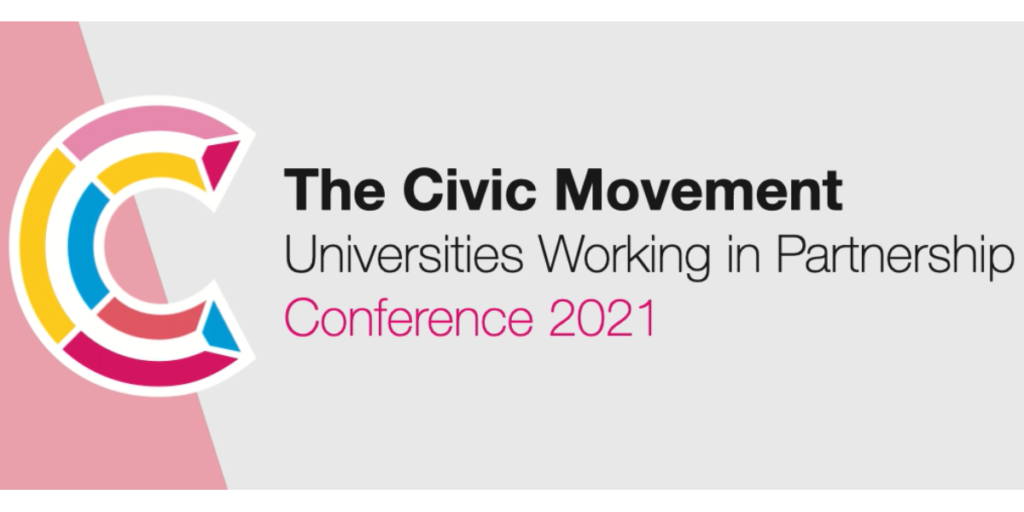 On the 18th – 20th of May, the Civic Universities Network will be holding its inaugural annual conference. Professor Simon Collinson will be hosting a conference panel session at the event looking at the contribution of universities to inclusive growth.
On the 18th – 20th of May, the Civic Universities Network will be holding its inaugural annual conference. Professor Simon Collinson will be hosting a conference panel session at the event looking at the contribution of universities to inclusive growth.
In this blog, Professor Collinson outlines some of the challenges of evaluating and enhancing this contribution.
The recently released KEF (Knowledge Exchange Framework) dashboards provide an excellent starting point to understand the highly varied economic, social and cultural contributions of universities to their host regions. Whether or not they consciously or strategically focus on civic engagement, universities have a positive impact. They invest significantly in local physical assets and jobs, provide skilled graduates (and student expenditure) stimulate innovation and support culture and the arts for local communities. Economic multiplier analysis and other approaches show this overall impact to be significant, not far off £4bill per year for the University of Birmingham (which is one of the largest).
However, these contributions vary considerably from place-to-place and this is only partly reflected in the KEF results, for several reasons. When we look beyond direct employment and investment, support for a local cultural asset, or work with a local community group, many types of regional contributions are difficult to trace. It is complicated to differentiate between local and national (or international) impacts, in terms of, for example, the added value of skilled graduates, knowledge exchange and innovation diffusion from university-based R&D or executive programmes run by business schools for large multinational firms. Inputs and outcomes can be disconnected by time and place.
There is also considerable variation in the alignment or fit, between what universities do and what local regions need. Our understanding of how they compare with and complement the contributions of other anchor institutions in different spatial geographies remains limited. Some universities (large and small) have evolved a closer set of local partnerships and activities which address specific gaps in local needs than others. The relative added value of, for example, support programmes for small firms, pro-bono legal advice for disadvantaged householders, or advanced manufacturing prototyping facilities, depends on local need and the presence or absence of other providers.
Making a more conscious and strategic contribution to host regions requires not just the motivation, from an internally driven mission or an externally driven ranking or funding mechanism, but also a better understanding amongst universities about the economic and social challenges and growth opportunities that are specific to their host regions.
We have made a start on exploring some of the pathways to impact at City-REDI and in our programme of research funded by UKRI Research England, WMREDI, with a consortium of local stakeholders. Our projects extend across an interconnected range of areas, looking at key industry sectors, skills demand-supply gaps, regional innovation ecosystems, disadvantaged communities and the institutions and governance of local growth, amongst others, to support more precise policy interventions. Particular areas of focus, given the national agenda, include levelling up, in partnership with the industrial strategy council and place-based R&D policies, with Research England.
The University of Birmingham is a founding partner of the Civic Universities Network, which holds its inaugural annual conference: The Civic Movement – Universities working in partnership May 18th – 20th.
Keynote speakers to launch the conference include:
- Michelle Donelan MP, Minister of State for Universities
- Lord Karan Bilimoria, President, CBI
- Dame Nancy Rothwell, President and Vice-Chancellor, University of Manchester
- Lord Kerslake, Chair of Civic University commission
Professor Simon Collinson will be chairing a panel session on inclusive regional growth with the following speakers.
- The Rt Hon Chris Skidmore MP, Former Minister of State for Universities
- Alice Frost, Director of Knowledge Exchange, Research England
- Alistair Jarvis, Chief Executive, Universities UK
- Anne Kiem, Chief Executive, Chartered Association of Business Schools
Professor John Goddard will be chairing a panel session jointly with Anne Rimmer from the OECD on civic universities around the world.
This blog was written by Professor Simon Collinson, Director, City-REDI and WMREDI.
Disclaimer:
The opinions presented here belong to the author rather than the University of Birmingham.

Excellent introduction to the panel section, Simon. Personally, I consider KEF, REF and TEF frameworks continue to have very weak local impact measures that will do little to drive university behaviour towards positive local engagement and improved outcomes per se (although individual universities will continue to do huge amounts for other reasons). For instance the two KEF local growth and regeneration ‘measures’ are income to the university and a narrative statement by the university itself; and there is no requirement for local contribution in the other six KEF classes. There is also no consistent assessment anywhere (as far I am aware) of any negative externalities of university footprints in their host cities and communities – although I recognise these are likely to be much smaller than positive impacts. They still need to be manged, though. I recently authored https://ied.co.uk/news_events/the_post_pandemic_civic_university/ to begin to scope considerations for the post-pandemic civic university. I hope this may be of some interest to the panel, and wish the session well.